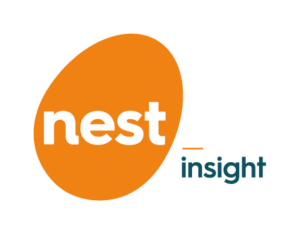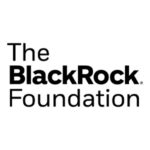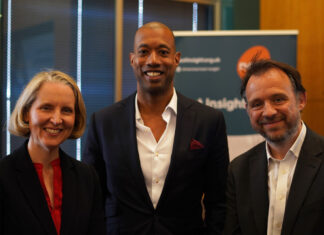- The UK lags behind other comparable countries in our rates of saving. One quarter of adults in the UK have less than £100 in savings and half would struggle to pay an unexpected £300 bill – leaving them vulnerable in emergencies.
- A new landmark report by Nest Insight, published today, shares full learnings from the first major UK trials into an opt-out approach to workplace payroll savings. The results demonstrate the powerful potential for this approach to make a difference for households across the UK – if scaled more widely beyond the pilots.
- Opt-out workplace savings could be a powerful pillar for greater household financial resilience and help to deliver multiple policy objectives while contributing to mental and physical wellbeing and productivity in the workplace. However, policy action would be needed for the pilot approaches to be more widely implemented.
The latest report by Nest Insight into workplace savings draws together evidence from trials with major employers over several years. It demonstrates that the huge potential of workplace payroll savings schemes can only be fully realised if an opt-out approach is taken, similar to the way employers have been automatically enrolling employees for some time into pension saving.
Since 2018 Nest Insight, the public benefit research and innovation centre on household financial security, has been working with major employers to trial payroll-linked saving schemes. We wanted to understand if automatically offering instant-access savings accounts to employees could help those who have faced barriers to saving. Employees still choose whether or not to save and can opt out in one easy step if it’s not right for them. But if they do decide to save, everything is done for them automatically.
Employees who took part in the scheme shared their positive experiences, highlighting the ease and flexibility of the opt-out approach. Our trials show that it is a powerful tool to make it easier for people to save consistently and build financial security.
Emma Reynolds, Economic Secretary to the Treasury said,
‘Delivering security for working people is at the heart of our Plan for Change.
‘We want to build financial resilience across the country so that people have something to fall back on for emergencies, such as a broken boiler, and I welcome’s Nest Insight’s thoughtful contribution to this work.’
The research trials, conducted in collaboration with SUEZ, Bupa Care Services, and the Co-op, showed that opt-out payroll saving significantly increased participation rates compared to traditional opt-in schemes, simply by changing the default to make it easier for people who wanted to save to get started. At SUEZ participation increased from only 1 in 100 people saving to 47 in 100 saving – or nearly half of eligible employees. And at Co-op and Bupa participation under the opt-out approach is even higher at 71 in 100 people saving, up from 16 in 100 when employees had to sign up to save.
Not only was the opt-out approach highly effective, it was also popular with employees. It supports people who have struggled to save before to get started, building new financial security and peace of mind.
Sarah Melvin, Head of UK & Europe, and Chair of Africa at BlackRock, said,
‘I am proud of The BlackRock Foundation’s partnership with Nest Insight and encouraged by the success of these groundbreaking trials. At BlackRock, our purpose is to help more and more people experience financial well-being. These findings highlight a powerful way of addressing the UK’s savings gap through an evidence-based opt-out approach to workplace savings that is popular with both employers and employees. The trials demonstrate the transformational impact that accessible emergency savings solutions can have on strengthening household financial resilience.’
Claire Costello, Chief People & Inclusion Officer for the Co-op, said,
‘Our colleagues told us they needed help to start saving, especially for the unexpected, and autosave has proven to be a simple but powerful way to offer that support. We’ve seen the difference it makes in helping people feel secure, confident, and in control of their finances. I’d encourage other employers to consider how this type of support could work for them too – together, we can make a positive, long-term impact on financial resilience and wellbeing.
‘By making colleague financial wellbeing a core priority, we’re also taking action on social mobility, a crucial ambition for Co-op and one that’s central to our vision. As employers, we have a vital role to play in creating a workplace that empowers growth, and I’m delighted that through this partnership with Nest Insight the Co-op has been able to lead in this space.’
Key takeaways
- The results are conclusive – workplace savings schemes can dramatically boost saving behaviours and support greater household financial resilience, but only if run on an opt-out basis.
- The evidence is robust. We’ve run multiple trials with different employee groups, including using a randomised controlled trial design – often considered the gold standard approach to measuring the impact of behavioural interventions – and worked with world-leading academic partners at Harvard and Yale throughout.
- No other approach to supporting emergency savings has been shown to be anywhere near as powerful.
- Payroll saving supports different financial resilience behaviours, including budgeting and cashflow management, even during a period of extraordinary living costs.
- Opt-out approaches to payroll saving are popular with employees and their employers.
- Workplace saving can make short and long-term goals complementary, boosting long-term saving and improving retirement outlooks.
- An opt-out approach addresses savings exclusion – it supports people who have struggled to save before to get started, building new financial security and peace of mind.
- The evidence that addressing the UK household savings gap would support wider business and goals is growing.
- Tackling low financial resilience is a key foundation to multiple government priorities and strategies.
Oliver Morley, Chief Executive at the Money and Pensions Service (MaPS) said,
‘At MaPS we want it to be much easier for people to put money into savings, no matter how small the amount. We were pleased to have been a programme partner for Nest Insight’s instrumental piece of research, which puts us on the cusp of exciting next steps as the government draws up its financial inclusion strategy.
‘As Nest Insight’s landmark report demonstrates, workplace payroll savings have the potential to have a positive impact on people’s lives. We know that those with a savings habit are more likely to display other financial wellbeing behaviours, giving people a greater sense of financial control and a future focus on their personal finances.’
Jo Phillips, Director of Research and Innovation at Nest Insight said,
‘The results of our workplace savings trials with Bupa, Co-op and SUEZ present a huge opportunity for policy makers, savings providers and employers to act. No other approach has been proven to be as successful at boosting savings participation amongst those who need it most. If scaled universally, opt-out payroll saving could support millions more UK households to gain the resilience and peace of mind of having a savings buffer in place to cope with financial shocks, supporting productivity at work and contributing to economic growth.’
ENDS
Notes to editors
For more details about workplace and opt-out savings please visit www.nestinsight.org.uk/research-projects/workplace-emergency-savings/
Read the report: Easier to Save (PDF)
Read the executive summary: Easier to Save – Executive Summary (PDF)
For more information, or to request an interview with a spokesperson, please contact Susan Patterson susan.patterson@nestcorporation.org.uk
About Nest Insight

Nest Insight is a public-benefit research and innovation centre. Our mission is to find ways to support people to be financially secure, both today and into retirement. We conduct rigorous, cutting-edge research, working collaboratively with industry and academic partners to understand the financial challenges facing low- and moderate-income households. We use these data-driven insights to identify and test practical, real-world solutions. Our findings are shared widely and freely so that people around the world can benefit from our work. For more information, visit nestinsight.org.uk
About our programme partners

BlackRock is a global investment manager serving the UK market for more than 30 years with a purpose to help more and more people experience financial wellbeing. BlackRock’s Emergency Savings Initiative is made possible through philanthropic support from the BlackRock Foundation and the BlackRock Charitable Gift Fund. The initiative brings together partner companies and non-profit financial health experts to make saving easier and more accessible for low- to moderate-income people across the US and UK, ultimately helping more people to establish an important financial safety net. For more information, visit blackrock.com/corporate/about-us/social-impact

The Money and Pensions Service (MaPS) vision is ‘everyone making the most of their money and pensions’. MaPS is an arm’s-length body committed to providing access to the information and guidance people across the UK need to make effective financial decisions over their lifetimes. For more information, visit maps.org.uk







